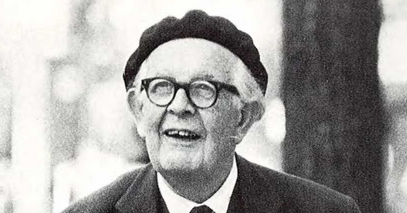The Enduring Legacy of Jean Piaget: A Pioneer in Cognitive Development

Jean Piaget (1896–1980) is widely regarded as one of the most influential figures in developmental psychology. His groundbreaking work on how children think, learn, and develop intellectually revolutionized our understanding of human cognition. Unlike many of his contemporaries who focused on behavior or psychoanalytic theory, Piaget emphasized the active role of the child in constructing knowledge through interaction with the world. His theory of cognitive development, along with his meticulous observational methods, remains a cornerstone of modern psychology and education. This article explores Piaget’s life, his key contributions, his stages of cognitive development, and the lasting impact of his work.
Early Life and Background
Jean Piaget was born on August 9, 1896, in Neuchâtel, Switzerland. From an early age, he displayed a remarkable curiosity about the natural world. By age 11, he published his first scientific paper on an albino sparrow, signaling the beginning of a lifelong passion for inquiry. Piaget initially pursued studies in biology and philosophy, earning a doctorate in natural sciences from the University of Neuchâtel in 1918. His interest in epistemology—the study of knowledge and how it is acquired—eventually led him to psychology.
While working at the Binet Laboratory in Paris, Piaget was tasked with standardizing intelligence tests for children. Rather than focusing solely on correct or incorrect answers, he became fascinated by the reasoning behind children’s responses, particularly their “wrong” answers. This experience sparked his lifelong investigation into how children’s thinking evolves over time.
Core Concepts of Piaget’s Theory
Piaget’s work is rooted in the idea that children are not passive recipients of knowledge but active constructors of their own understanding. He proposed that cognitive development occurs through a dynamic interplay of biological maturation and environmental interaction. Two key processes underpin this development:
- Assimilation: Incorporating new experiences or information into existing mental frameworks (schemas).
- Accommodation: Modifying existing schemas or creating new ones in response to new experiences that do not fit prior understanding.
Piaget believed that cognitive growth progresses through a series of distinct stages, each characterized by qualitative differences in how children think. He argued that these stages are universal, though the pace at which individuals move through them may vary.
The Four Stages of Cognitive Development
Piaget’s most famous contribution is his theory of cognitive development, which outlines four stages that children pass through as they mature. These stages describe the evolution of thought from infancy to adolescence.
- Sensorimotor Stage (Birth to 2 Years)
In this earliest stage, infants learn about the world through their senses and actions—touching, grasping, looking, and listening. A key milestone is the development of object permanence, the understanding that objects continue to exist even when out of sight. For example, a baby who watches a toy being hidden under a blanket will eventually search for it, demonstrating this cognitive leap. Piaget observed his own children to refine his ideas about this stage, noting how trial-and-error exploration drives early learning. - Preoperational Stage (2 to 7 Years)
During this stage, children begin to use symbols, such as language and pretend play, to represent the world. However, their thinking remains egocentric, meaning they struggle to see perspectives other than their own. They also lack conservation, the ability to understand that quantity remains the same despite changes in appearance (e.g., a tall, thin glass holds the same amount of water as a short, wide one). Piaget’s famous experiments, like the conservation of liquid task, illustrated these limitations vividly. - Concrete Operational Stage (7 to 11 Years)
At this stage, children develop logical thinking about concrete, tangible objects and events. They grasp conservation, reversibility (e.g., understanding that 5 + 3 = 8 can be undone by 8 – 3 = 5), and classification skills. However, abstract or hypothetical reasoning remains challenging. For instance, a child can sort coins by size or value but may struggle with “what if” scenarios that require imagining unreal situations. - Formal Operational Stage (11 Years and Beyond)
In the final stage, individuals gain the ability to think abstractly and hypothetically. They can solve complex problems, reason about possibilities, and engage in deductive logic. For example, a teenager might ponder philosophical questions like “What is justice?” or devise strategies in a game without physically testing every move. Piaget believed this stage marks the pinnacle of cognitive development, though not all individuals fully reach it.
Methodology: The Clinical Interview
Piaget’s research methods were as innovative as his theories. He pioneered the clinical interview, a flexible, conversational approach to studying children’s thinking. Rather than relying on standardized tests, he asked open-ended questions and observed how children reasoned through problems. For example, he might ask, “Why does the sun move across the sky?” and probe further based on the child’s response. This method allowed him to uncover the underlying structure of children’s thought processes, revealing insights that quantitative measures often missed.
Applications in Education
Piaget’s work has had a profound impact on education. He advocated for constructivist learning, where students actively build knowledge rather than passively absorb it. His ideas inspired child-centered pedagogies that emphasize exploration, discovery, and hands-on activities tailored to developmental stages. For instance, teachers might use manipulatives like blocks to teach math concepts to concrete operational learners, ensuring the material aligns with their cognitive abilities.
Piaget also influenced the design of curricula by highlighting the importance of readiness. He argued that children cannot be rushed through stages; attempting to teach abstract algebra to a preoperational child, for example, would likely fail because the foundation for such thinking isn’t yet in place.
Criticisms and Limitations
While Piaget’s contributions are monumental, his work is not without critique. Some researchers argue that he underestimated young children’s abilities. Studies like the “false belief” task in theory of mind research suggest that children as young as 4 can understand others’ perspectives, challenging Piaget’s notion of egocentrism. Others point out cultural biases in his theory, noting that the stages may not apply universally across diverse societies where learning environments differ.
Additionally, Piaget’s focus on qualitative stages has been criticized for lacking precision. Modern developmental psychologists often favor continuous models of growth over rigid stage-based frameworks. Despite these critiques, his ideas remain a vital starting point for ongoing research.
Piaget’s Broader Legacy
Beyond his stages, Piaget contributed to fields like epistemology and genetic psychology (the study of knowledge development). His books, including The Psychology of the Child and The Origins of Intelligence in Children, are seminal texts that continue to inspire scholars. He also co-founded the International Center for Genetic Epistemology in Geneva, where he explored interdisciplinary questions about knowledge until his death in 1980.
Piaget’s influence extends beyond academia. His work shaped parenting practices, encouraging caregivers to foster curiosity and exploration in children. In psychology, his emphasis on internal cognitive structures paved the way for the cognitive revolution of the mid-20th century, influencing figures like Noam Chomsky and Jerome Bruner.
Conclusion
Jean Piaget’s work transformed our understanding of how the human mind develops. By viewing children as “little scientists” who actively construct their realities, he challenged prevailing notions of learning and intelligence. His four-stage theory, while refined by later research, remains a foundational framework for studying cognitive growth. As of March 2, 2025, Piaget’s legacy endures in classrooms, research labs, and homes worldwide, reminding us that development is not a passive process but a journey of discovery. His life’s work stands as a testament to the power of curiosity—both his own and that of the children he so carefully studied.
